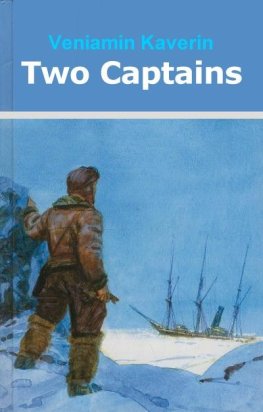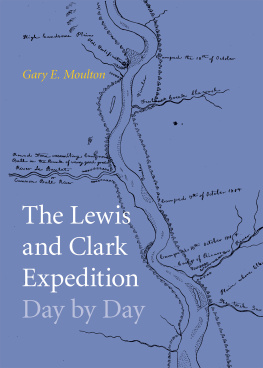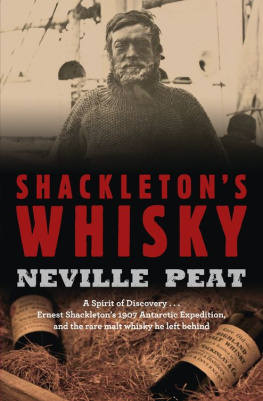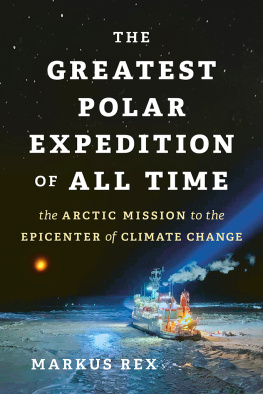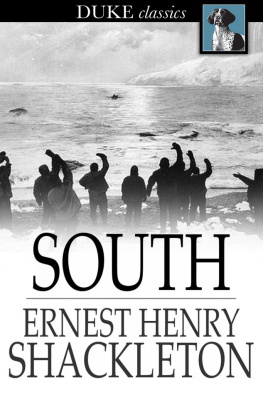VENIAMIN KAVERIN
TWO CAPTAINS
Translation from the Russian
Translated by Bernard Isaacs
(Abridged by the Author)
The Foreign Languages Publishing House
MOSCOW 1945
Author's Preface
BOOK ONEPART ONE.Childhood
Chapter 1. The Letter. In Search of the Blue Crab
Chapter 2. Father
Chapter 3. The Petition
Chapter 4. The Village
Chapter 5. Doctor Ivan Ivanovich. I Learn to Speak
Chapter 6. Father's Death. I Refuse to Speak
Chapter 7. Mother
Chapter 8. Pyotr Skovorodnikov
Chapter 9. Stroke, Stroke, Stroke, Five, Twenty, a Hundred
Chapter 10. Aunt Dasha
Chapter 11. A Talk with Pyotr
Chapter 12. Scaramouch Joins the Death Battalion
Chapter 13. Journey's End
Chapter 14. We Run Away. I Pretend to Be Asleep
Chapter 15. To Strive, to Seek, to Find and Not to Yield
Chapter 16. My First Flight
Chapter 17. Clay Modelling
Chapter 18. Nikolai Antonich
PART TWO.Food for Thought
Chapter 1. I Listen to Fairy-Tales
Chapter 2. School
Chapter 3. The Old Lady From Ensk
Chapter 4. More Food for Thought.
Chapter 5. Is There Salt in Snow?
Chapter 6. I Go Visiting
Chapter 7. The Tatarinovs
Chapter 8. Korablev Proposes
Chapter 9. The Rejected Suito
Chapter 10. I Go Away
Chapter 11. A Serious Talk
Chapter 12. I Start Thinking
Chapter 13. The Silver Fifty-Kopeck Piece
PART THREE.Old Letters
Chapter 1. Four Years
Chapter 2. The Trial of Eugene Onegin
Chapter 3. At the Skating-Rink
Chapter 4. Changes
Chapter 5. Katya's Father
Chapter 6. More Changes
Chapter 7. Marginal Notes
Chapter 8. The Ball
Chapter 9. My First Date. Insomnia
Chapter 10. Troubles
Chapter 11. I Go to Ensk
Chapter 12. Home Again
Chapter 13. The Old Letters
Chapter 14. A Rendezvous in Cathedral Gardens. "Do Not Trust That Man"
Chapter 15. We Go for Walks. I Visit Mother's Grave. Day of Departure
Chapter 16. What Awaited Me in Moscow
Chapter 17. I Burn My Boats
Chapter 18. An Old Friend
Chapter 19. It Could All Have Been Different
Chapter 20. Maria Vasilievna
Chapter 21. In the Dead of Night
Chapter 22. It Isn't Him
Chapter 23. Slander
Chapter 24. Our Last Meeting
PART FOUR.The North
Chapter 1. Flying School
Chapter 2. Sanyo's Wedding
Chapter 3. I Write to Doctor Ivan Ivanovich.
Chapter 4. I Receive a Reply.
Chapter 5. Three Years
Chapter 6. I Meet the Doctor
Chapter 7. I Read the Diaries.
Chapter 8. I think we have met.
Chapter 9. Good Night!.
Chapter 10. The Flight
Chapter 11. The Blizzard
Chapter 12. What Is a Primus-Stove?
Chapter 13. The Old Boat-Hook
Chapter 14. Vanokan
PART FIVE.For the Heart
Chapter 1. I Meet Katya
Chapter 2. Korablev's Anniversary
Chapter 3. Without Title
Chapter 4. News Galore
Chapter 5. At the Theatre
Chapter 6. Still More Comes to Light
Chapter 7. "We Have a Visitor!"
Chapter 8. True to a Memory
Chapter 9. It Is Decided-She Goes Away.
Chapter 10. Sivtsev-Vrazhek
Chapter 11. A Hectic Day
Chapter 12. Romashka
BOOK TWO
PART SIX. From the Diary of Katya Tatarinova YOUTH CONTINUES
PART SEVEN. From the Diary of Katya Tatarinova SEPARATION.
PART EIGHT.Told by Sanya Grigoriev. To strive, to seek
Chapter 1. He
Chapter 2. All We Could
Chapter 3. "Is That You, Owl?"
Chapter 4. Old Scores
Chapter 5. In the Aspen Wood
Chapter 6. Nobody Will Know
Chapter 7. Alone
Chapter 8. The Boys
Chapter 9. Dealing with Love.
Chapter 10. The Verdict
Chapter 11. I Look for Katya
Chapter 12. I Meet Hydrographer R.
Chapter 13. Decision.
Chapter 14. Friends Who Were Not at Home
Chapter 15. An Old Acquaintance. Katya's Portrait
Chapter 16. "You Won't Kill Me"
Chapter 17. The Shadow
PART NINE.To Find and Not to Yield
Chapter 1. This Is Not the End Yet.
Chapter 2. The Doctor Serves in the Arctic
Chapter 3. To Those at Sea
Chapter 4. Ranging Wide
Chapter 5. Back at Zapolarie
Chapter 6. Victory
PART TEN.The Last Page
Chapter 1. The Riddle Is Solved
Chapter 2. The Unbelievable
Chapter 3. It Was Katya
Chapter 4. The Farewell Letters
Chapter 5. The Last Page
Chapter 6. The Homecoming
Chapter 7. Two Conversations
Chapter 8. My Paper
Chapter 9. And the Last.
Epilogue
AUTHOR 'S PREFACE
I recall a spring day in 1921, when Maxim Gorky first invited to his home a group of young Leningrad writers, myself among them. He lived in Kronwerk Street and the windows of his flat overlooked Alexandrovsky Park. We trooped in, so many of us that we took quite a time getting seated, the bolder ones closer to the host, the more timid on the ottoman, from which it was a job getting up afterwards-it was so soft and sagged almost to the floor. I shall always remember that ottoman of Gorky's. When I lowered myself on to it I saw my outstretched feet encased in shabby soldier's boots. I couldn't hide them away. As for getting up-it was not to be thought of. Those boots worried me until I noticed a pair just as bad, if not worse, on Vsevolod Ivanov, who was sitting next to Gorky.
Alice in her wonderland underwent strange transformations on almost every page of Carrolls book. At one moment she becomes so small that she freely goes down a rabbit's hole, the next so tall that she can speak only with birds living in the tree-tops. Something like that was happening to me at Gorky's place. At one moment I thought I ought to put in a word of my own in the conversation that had started between Gorky and my older companions, a word so profound that it would make them all sit up. The next minute I shrank so small on that low uncomfortable ottoman that I felt a sort of Tom Thumb, not that brave little fellow we all know, but a somewhat timorous Tom Thumb, at once timorous and proud.
Gorky began to speak with approval about Ivanov's latest short story "The Brazier of Archangel Gabriel". It was this that started me on my transformations. Ivanov's story was far removed from anything that interested me in literature, and I took Gorky's high opinion of it as a harsh verdict on all my hopes and dreams. Gorky read the story out aloud. His face softened, his eyes grew tender and his gestures betrayed that benign mood so familiar to everyone who had seen Gorky in moments of pure rapture.
He dabbed his eyes with his handkerchief and began to speak about the story. His admiration for it did not prevent him from seeing its shortcomings. Some of his remarks applied even to the choice of words.
"What is the work of a writer?" he asked, and for the first time I heard some very curious things. The work of a writer, it appeared, was simply work, the daily, maybe hourly work of writing, writing on paper or in one's mind. It meant piles of rough copies, dozens of crossed-out versions. It meant patience, because talent imposed upon the writer a peculiar pattern of life in which patience was the most important thing of all. It was the life of Zola, who used to strap himself to his chair; of Goncharov, who took about twenty years writing his novel Obryv (Precipice); of Jack London, who died of fatigue, whatever his doctors may have said. It was hard life of self-dedication, full of trials and disappointments. "Don't you believe those who say that it is easy bread," Gorky said.
To describe a writer's work in all its diversity is no light task. I may get nearest to doing this by simply answering the numerous letters I have received in connection with my novel Two Captains and thus telling the story of how this one novel at least came to be written.

